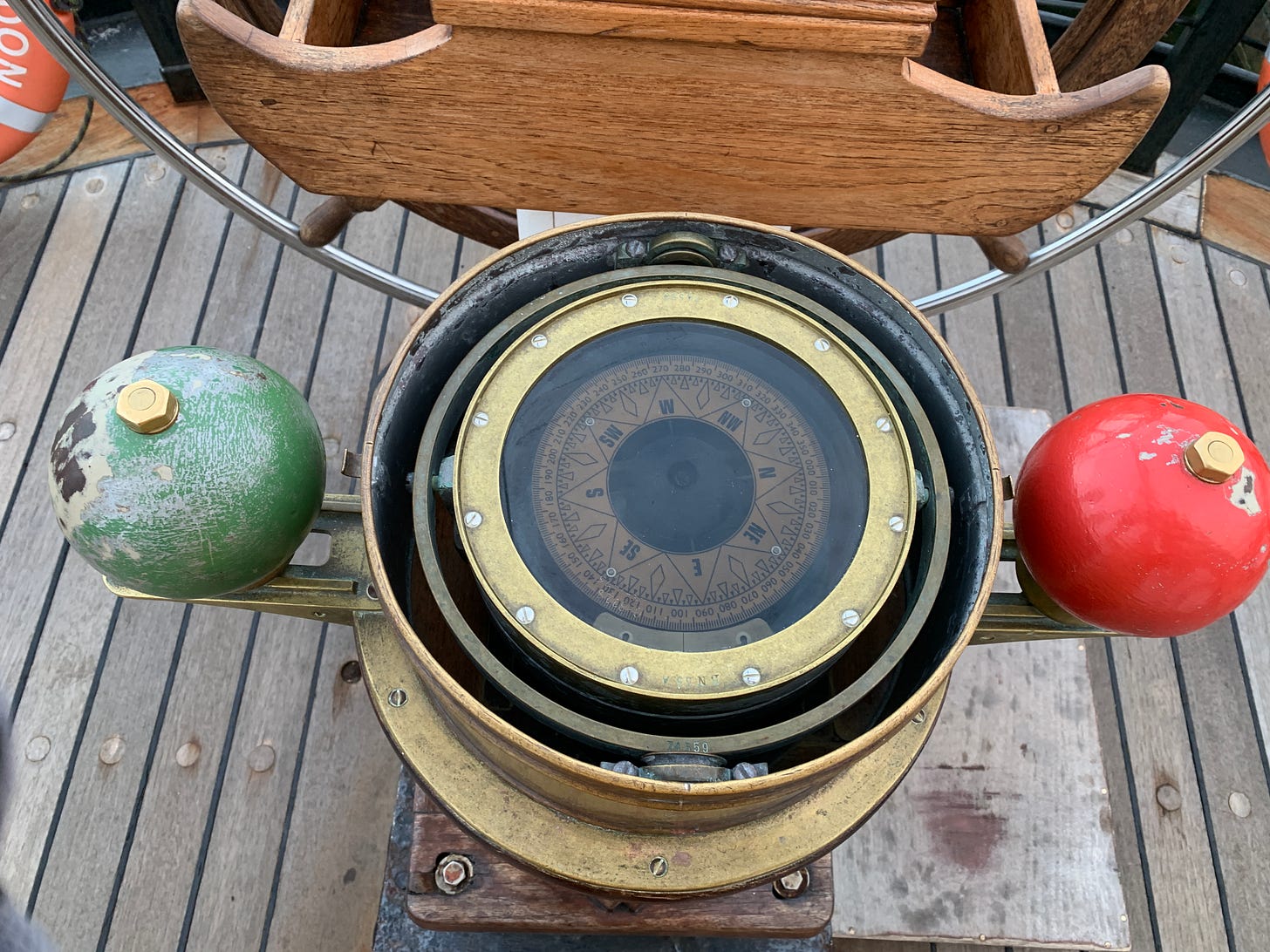When I was on watch duty on the tall ship, The Pelican of London, I learned that it really was about ‘watching’. Especially at night, watching for anything that might change on that dark and heaving sea between the ship and the horizon, particularly other shipping, although it could be buoys or a light flashing, anything at all that had changed. Then to tell the officer on duty about it, who would if necessary factor it in to course calculations. Dan, the second mate on duty one night with our Mizzen watch, came to me as I stood at the port side and he then pointed to a cargo vessel he could spot on the horizon. I couldn’t see it no matter how I peered and concentrated. He shared a trick with me, to not look directly but instead to look a little further along the horizon, to one side, and allow my peripheral vision to catch it.
I have a writing mini-deadline agreed with my mentor that I have committed to for midweek, around the 17th or 18th. This is for my novel-in-progress. But for the past few days I have instead worked on a creative non-fiction piece that I have wanted to bring to submission stage. It’s memoir and a lot of it was written in bits and scraps in the company of others online during lockdowns and I have been intermittently working to make it a coherent whole ever since. Over recent days I read it through again, printed it out, caught inconsistencies, printed it out again, smoothed out what I thought clunky, repeated this several times and yesterday at midday I called it done (for now) and pressed the send button in Submittable on almost 5k words .
This time, instead of my usual tendency to berate myself for not focusing on my novel I granted myself permission to look slightly to one side of what I really want to capture (they are not unrelated to be fair) and allow my creative peripheral vision to be tricked into getting a more complete view. Bearing in mind of course, that I do need to bring the thing itself into my full focus now.
After I had written the above I randomly opened Peter Elbow’s1 evergreen (to me) book, Writing with Power, which I always have close by, and found this, with the section heading, The Voyage Home:
If you want to end up with new insights, you have to allow yourself to lose sight of your topic during much of the voyage out… But the voyage home is a process of bending the curve back toward the original goal… Then go back over all that writing you did during the voyage out and look for useful ideas and insights.
If you are in this kind of creative space too, maybe getting back in the boat2 for the voyage home, I wish you fair winds and let us hold in mind that there can be ‘magic in chaos’.
A user’s guide to my book, Weather Report: a 90-day journal for reflection and well-being, with the aid of the Beaufort Wind Scale.
This interview with Peter Elbow gives a good sense of his approach. He also wrote the foreward for my late mentor Pat Schneider’s book, Writing Alone and with Others








I’m definitely looking for insights in my work and love the idea of magic in the chaos. Thank you for your writing Margaret.
Beautiful writing. I do find that I often catch sight of things in my peripheral vision, especially at night or low light. To apply that to creativity is enlightening.
I have just unpacked "Weather Report". I'm really looking forward to diving into daily journalling.